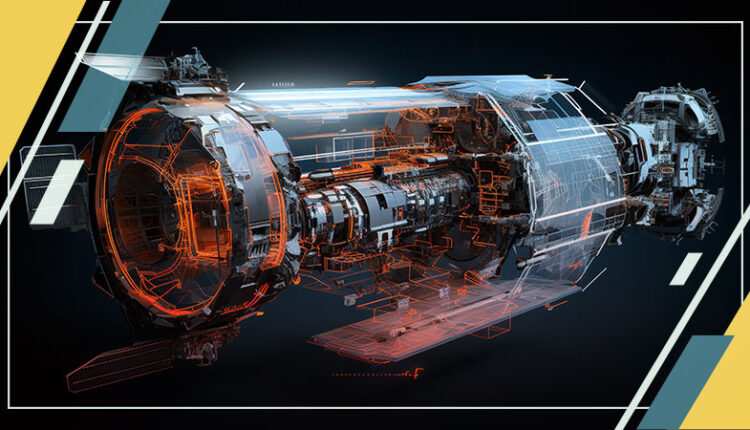In the vast realm of aerospace technology, one of the significant challenges lies in finding efficient energy storage solutions that can power various systems onboard aircraft and spacecraft. Traditional batteries have limitations, such as limited lifespan, weight, and slow charging times, which hinder their effectiveness in meeting the demanding requirements of aerospace applications. However, a promising solution has emerged: aerospace ultracapacitors. These advanced energy storage devices offer a plethora of benefits and have the potential to revolutionize the aerospace industry by addressing the energy storage needs of modern aircraft and spacecraft.
What are Aerospace Ultracapacitors?
Aerospace Ultracapacitors, also known as supercapacitors or electric double-layer capacitors, are high-capacity energy storage devices that store and release energy rapidly. Unlike traditional batteries, which rely on chemical reactions, ultracapacitors store energy electrostatically, making them highly efficient and capable of delivering bursts of power when required. These devices consist of two electrodes separated by an electrolyte and can store a large amount of energy in the electric field between the electrodes.
Benefits of Aerospace Ultracapacitors
The utilization of aerospace ultracapacitors in aerospace applications brings a multitude of benefits. Firstly, ultracapacitors offer high power density, meaning they can deliver a significant amount of power in a short period, making them ideal for applications that require rapid energy release. Additionally, ultracapacitors have a long cycle life, enabling them to withstand numerous charge and discharge cycles without significant degradation. This longevity reduces the need for frequent replacements, ultimately leading to cost savings. Furthermore, ultracapacitors are lightweight compared to traditional batteries, allowing for reduced weight onboard aircraft and spacecraft, which is crucial for improving fuel efficiency and increasing payload capacity.
How Aerospace Ultracapacitors Work?
The working principle of Aerospace Ultracapacitors revolves around the concept of electrostatic energy storage. When a voltage is applied, ions from the electrolyte migrate towards the electrodes, creating a double layer of charges. This separation of charges leads to the storage of energy in the electric field between the electrodes. When energy is required, the stored energy is released, and the ions return to their initial positions. This process is highly efficient and can be repeated numerous times, allowing ultracapacitors to deliver high power density and have a long cycle life.
Applications of Aerospace Ultracapacitors
Electric Propulsion Systems: These devices find extensive use in electric propulsion systems. They can deliver high bursts of power, making them suitable for applications such as takeoff and acceleration. Ultracapacitors enhance the efficiency of regenerative braking systems, capturing and storing energy that would otherwise be wasted during braking and releasing it for subsequent acceleration.
Emergency Power Backup: Ultracapacitors are utilized in emergency power backup systems in aerospace applications. They ensure critical functions like avionics, communication, and life support systems remain operational during power outages or failures. The rapid charge and discharge capabilities of ultracapacitors make them reliable energy storage solutions for emergencies.
CubeSats and Satellites: Ultracapacitors are being used to increase the performance of miniature satellites known as CubeSats. They provide high power capabilities for onboard systems that require rapid energy release. Ultracapacitors are also employed in various other satellite and spacecraft systems, where traditional power sources may not be able to handle the high power demands.
Avionics and Aircraft Systems: Ultracapacitors are ideal for powering avionics and lighting systems in aircraft. They offer high power density, rapid charge and discharge capabilities, and a longer lifespan compared to traditional batteries. Ultracapacitors can also be used for backup power in aircraft systems, ensuring uninterrupted operation during critical moments.
Military and Defense Applications: Aerospace ultracapacitors are widely used in military and defense applications due to their high power density, long service life, and resistance to extreme temperatures and vibration. They find applications in avionics, emergency power systems, munitions, radar systems, and more. Ultracapacitors provide reliable energy storage solutions for critical military operations.
Can Aerospace Ultracapacitors Withstand High Temperature?
Aerospace ultracapacitors can handle severe temperatures, perfect for aerospace use. These modern energy storage devices operate in wider temperature ranges than batteries, functioning efficiently in hot and cold climates. Certain ultracapacitors from FastCAP Systems are built for high-heat environments, withstanding temperatures over 125°C. Validated for operation between -110°C and 250°C, they suit aerospace, defense, and industries involving extreme conditions. Ultracapacitors also work in extreme cold, though low temperatures may increase cell resistance. However, they maintain reliable performance in frigid environments. Designed to endure harsh conditions like vibrations and shocks, these ultracapacitors are ruggedized for aerospace, defense, and automotive applications. With vibration survival exceeding 20 g RMS and shock survival of 500g, they’re equipped for demanding aerospace system environments.
End Note
Aerospace ultracapacitors demonstrate immense potential as a solution to the energy storage challenges faced in the aerospace industry. With their high power density, long cycle life, and lightweight nature, they offer various benefits that can significantly enhance the efficiency and performance of aircraft and spacecraft. From electric propulsion systems to emergency power backup, the applications of aerospace ultracapacitors are vast and promising. As research and development in this field continue to progress, we can expect to witness the widespread integration of ultracapacitors in aerospace technology, paving the way for a more sustainable, efficient, and innovative future in the skies and beyond.


